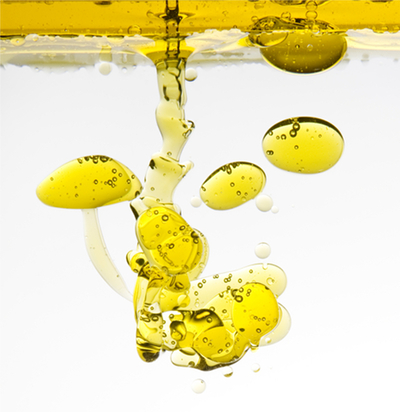Miscibility: Why Oil and Water Don't Mix

There are certain aspects of life that we accept as a given and never question, so much so that we make cute little saying around them. "They are like oil and water!" some people say, "they just don't mix." But when one takes a close look at substances like oil and water, a mystery is observed. They truly will not meld; in fact, oil will sit on top of the water even after the two items are shaken or stirred. This is perplexing. These are after all two liquids-why don't they mix?
Miscible and Immiscible Substances
The reason why oil and water will not merge on a molecular level has to do with solubility or lack thereof. Solubility is the ability of a particular property to dissolve. Certain substances, like salt for example, are considered soluble. One of salt's solvents, water, can be mixed with the granules to break it down and create a "solution."
Not all substances are able to dissolve one another. Miscible substances can be mixed into a homogenous solution of equal parts (i.e. not dissolving one another), while immiscible substances cannot merge. Immiscible substances literally repel one another. Atomically speaking, they both have the same charge. Just as two magnets with the same charge cannot be pushed together, any substances with similar opposing charges cannot be joined.
Water and Oil Immiscible
The aforementioned facts make oil and water both immiscible substances when it comes to trying to combine the two of them together. In other words, they are incapable of forming a solution since neither property will dissolve into a mixture, nor can they be homogenously mixed without dissolving.
These types of chemical reactions, when reflected upon, can indicate how often chemistry impacts out lives even in small ways. This reminder can be all at once awe-inspiring and humbling, underlining the fact that life is a mystery in and of itself and always will be.